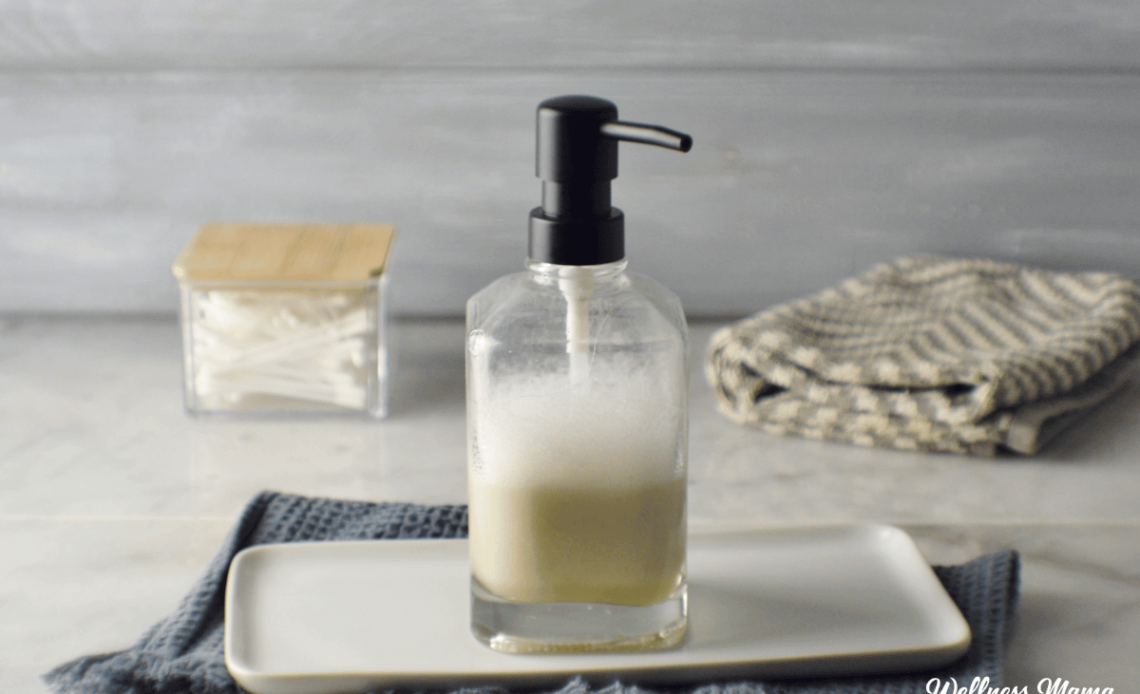[ad_1]
When it comes to hair care, there are so many options available in stores, but many of them are filled with harmful ingredients that can be damaging to both our hair and our health. That’s why I decided to start making my own natural hair care products, including body wash, dry shampoo, and now, homemade shampoo.
Creating a DIY moisturizing homemade shampoo was a bit of a challenge for me. I went through many failed experiments before finally coming up with a recipe that worked for my hair type. The end result is a shampoo that uses natural ingredients and leaves my hair feeling soft and silky.
Why Make Your Own Shampoo?
I wanted to steer clear of store-bought shampoos that are loaded with unhealthy preservatives, synthetic chemicals, and artificial fragrances. Many commercial shampoos can actually do more harm than good to your hair and scalp, so I knew it was time to make a change.
I initially tried the “no-poo” method, which involves using alternative methods to cleanse the hair without traditional shampoo. While this method works well for some people with coarse, dry hair, it didn’t work for my fine, oily hair. I ended up with a mess of tangles and frizz, which was not a good look for me.
After my failed attempt at the no-poo method, I started experimenting with homemade shampoo recipes. I tried using plain liquid castile soap, but it left my hair frizzy and tangled. I also tested out several homemade recipes that just didn’t work well for me.
Finally, I found inspiration in a natural coconut milk shampoo that I loved and decided to create my own version. The result was a homemade shampoo that suds up like conventional shampoo, cleanses the hair effectively, and doesn’t leave my hair feeling oily or tangled.
A Different Approach to Homemade Shampoo
The key ingredient in my homemade shampoo recipe is coconut milk. Coconut milk helps to soften the hair and add natural oils, leaving your hair feeling nourished and healthy. I found that using homemade coconut milk worked better for me than canned coconut milk, so keep that in mind when choosing your ingredients.
Aside from coconut milk, you’ll also need liquid castile soap (like Dr. Bronners), essential oils of your choice for scent, and a carrier oil if your hair tends to be on the drier side. You can customize the recipe to suit your specific hair needs, whether that means adding honey, aloe vera gel, or glycerin.
Essential Oils for Hair Health
Adding essential oils to your homemade shampoo not only provides a pleasant scent but can also improve scalp and hair health. Here are a few essential oils that are beneficial for hair:
- Tea tree oil: Helps with dandruff and itchy scalp, and can even treat head lice.
- Rosemary oil: Reduces scalp itchiness and flakes, restores the hair’s natural oil balance, and can help prevent split ends.
- Lavender oil: Increases the number of hair follicles for better hair growth.
- Peppermint oil: Increases hair growth, thickness, and length, and deepens hair follicles for stronger hair.
How to Make Natural Homemade Shampoo
Below is the recipe for my DIY moisturizing homemade shampoo:
Natural Homemade Shampoo
This homemade natural shampoo smells great, works well, and lathers!
Yield: 4 ounces
Author: Katie Wells
-
Combine all the ingredients in a bottle or jar. Pump soap dispensers and even foaming dispensers work well for this. If you use a foaming dispenser you may need to add ¼ cup of distilled water.
-
Shake well to mix.
-
Shake before each use and massage through the scalp.
-
Store your shampoo in the fridge after each use.
- If you use a foaming dispenser, it also makes a great shaving cream.
- The shelf life of this shampoo is about one week when stored in the fridge.
Troubleshooting Tips
It’s important to note that the effectiveness of this shampoo can vary depending on your hair type and the quality of your water. Some people with hard water may find that the shampoo doesn’t work as well due to the extra minerals in their water.
Additionally, the type of coconut milk you use can make a difference in the results. Some have found that canned coconut milk didn’t work well for them, while homemade coconut milk did. Keep in mind that homemade coconut milk has a shorter shelf life than canned, so use it accordingly.
If you find that your hair is greasy or unmanageable after using this shampoo, try doubling the amount of castile soap in the recipe.
Natural Hair Conditioner Options
Since the coconut oil and carrier oil in this shampoo recipe are already moisturizing, you may not need to use a separate conditioner. However, if you want to try some conditioning options, here are a few suggestions:
- A chamomile tea rinse at the end of each shower can produce smooth, silky hair and naturally lighten hair over time.
- A 50:50 mixture of apple cider vinegar and water used as a rinse can help cleanse the hair and increase shine.
- You can also try making your own homemade conditioner using hair-nourishing oils, glycerin, and essential oils.
Conclusion
Now that you have the recipe for a DIY moisturizing homemade shampoo, you can take control of what goes into your hair care products. By using natural ingredients and avoiding harmful chemicals, you can promote healthier hair and scalp while also reducing your exposure to potentially toxic substances.
Experiment with different ingredients and essential oils to find the perfect combination for your hair type and preferences. Whether you choose to make your own shampoo or opt for a natural store-bought option, your hair will thank you for making the switch to healthier hair care products.
Have you ever made your own shampoo or tried the “no-poo” method? Share your experiences and tips in the comments below!
[ad_2]
Related Products
[products limit="3" columns="3"]


